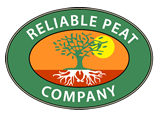If you’re looking for mulch for your next landscaping project, there are a variety to choose from, both organic mulch, such as pine bark and cypress, or stones, such as river rock, granite, and marble chips. Each one can make a significant impact on not only the landscape’s appearance, but also on the budget.
 Which ever type of mulch you choose, buying in bulk saves you money and gives you a better quality product.
Which ever type of mulch you choose, buying in bulk saves you money and gives you a better quality product.
Save even more by taking advantage of Reliable Peat’s Fall discount, 10% off all bulk orders over 6 yards, just mention this blog before you check out!
Organic Mulch
Usually, organic mulch is used for gardens and flower beds. It’s also relatively inexpensive, especially if purchased in bulk. The more popular types include,
Pine bark mulch
Chocolate mulch
Cypress mulch
Red mulch
Black mulch
Benefits of Organic Mulch
There are many benefits of organic mulch, first it is easy to apply, when it decomposes it releases nutrients into the soil, insulates plants, protecting them from harsh weather conditions, and it retains moisture so you don’t have to water quite as often.
Drawbacks of Organic Mulch
Mulch will have to be replaced more often than stone, heavy winds and storms can wash it away, and Central Florida’s sun can slightly fade the color.
Stone, Gravel and Rock Mulch
There are many varieties of stone mulch that come in a variety of textures, size, colors, and shape. They are very popular around buildings, driveways, and walkways.
Granite
Seminole chip
Cedar bark rock
Brown river rock
Limestone
White sand
Pea rock
Alabama marble chips
Crushed concrete
Benefits of Stones
Stones and rocks won’t have to be replaced as often as organic mulch. It needs very little maintenance, and does not promote fungi growth because it does not retain moisture. Since stones are heavy they don’t get washed away in storms and don’t decompose.
Drawback of Stone and Rocks
Rocks and stones tend to be more expensive than organic mulch and since they are heavier, they can be more difficult to apply. Since they don’t decompose, they won’t add nutrients to the soil.



